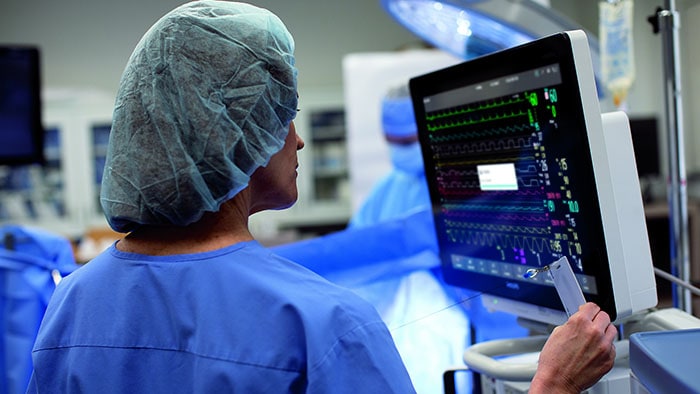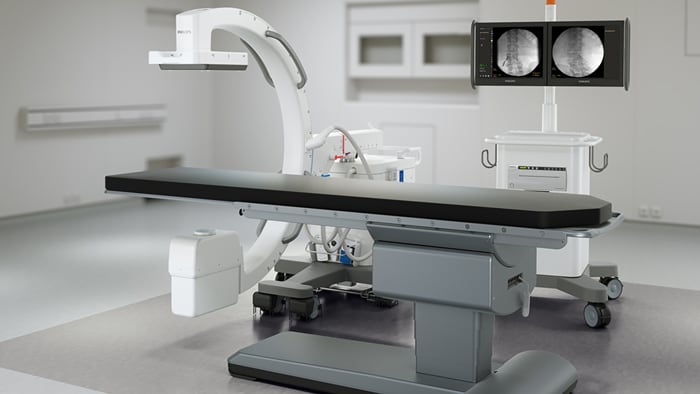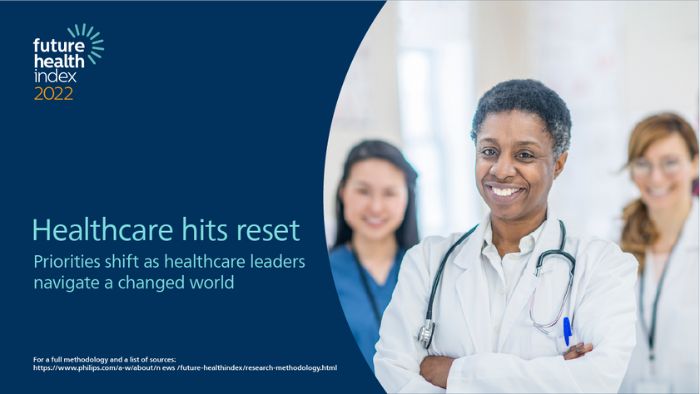Nov 18, 2020
43% of younger South African healthcare professionals consider leaving the profession as a result of work-related stress
However, these younger healthcare professionals have high expectations that the adoption of the right technologies will reduce their stress and are excited by the future of medical technology Johannesburg – ![]() Philips South Africa(NYSE: PHG, AEX: PHIA), a global leader in health technology, today released itsFuture Health Index (FHI) 2020 South Africa report: The age of opportunity: Empowering the next generation to transform healthcare. The report provides unique perspectives into how prepared the next generation of healthcare professionals are to manage tomorrow’s healthcare; revealing a pressing need to prioritise career satisfaction of the younger generation of South African healthcare professionals in order to deliver current and future care needs.
Philips South Africa(NYSE: PHG, AEX: PHIA), a global leader in health technology, today released itsFuture Health Index (FHI) 2020 South Africa report: The age of opportunity: Empowering the next generation to transform healthcare. The report provides unique perspectives into how prepared the next generation of healthcare professionals are to manage tomorrow’s healthcare; revealing a pressing need to prioritise career satisfaction of the younger generation of South African healthcare professionals in order to deliver current and future care needs.
Now in its fifth year, the Future Health Index 2020 report is the first large-scale survey of its kind based on responses from almost 3,000 younger healthcare professionals across 15 countries – and in South Africa specifically around 200 - which reveals critical insights from this new generation that that will comprise most of the healthcare workforce over the next 20 years. The Future Health Index South Africa 2020 report identifies three critical findings: It is vital to create the ideal healthcare working environment to retain healthcare professionals Across the 15 countries surveyed, younger healthcare professionals juggle immense responsibility with long working hours, leading to stress and potential burnout - but the report shows younger South African healthcare professionals feel this acutely. 82% reported regularly experiencing work-related stress, while 43% considered leaving the profession as a result of work-related stress; 9% points higher than the average of the 15 countries surveyed (34%). The shortage of healthcare professionals in South Africa is likely a large factor contributing to the high levels of work-related stress felt by younger South African healthcare professionals. There is a danger that stress, combined with inflexible working cultures and a lack of empowerment, could prompt an early exodus from the profession.
“It is vital for healthcare leaders to prioritise the working conditions of the younger generation of South African healthcare professionals in order to protect the future integrity of the healthcare system,” , “This means taking care of all their talents’ needs including creating spaces to allow for a better work-life balance, improved working hours, access to mental health care services including debriefing on site and autonomy in the hospital or practice where they are working.”
Dr Nokukhanya Khanyile
Medical doctor and Vice President of Mental Matters.
South African healthcare professionals rate technology as highly as work-life balance Unlike their peers in some of the other countries surveyed, younger South African healthcare professionals believe access and availability to the latest equipment or technology (93%) is as important as work-life balance (92%) when deciding where to work, possibly due to its potential to decrease their workloads and work-related stress. Therefore, improved technology may be one way to retain their talent and expertise, as most younger healthcare professionals in South Africa (72%) are excited about the future of their profession due to technology. 57% of younger South African healthcare professionals believe that being at the forefront of artificial intelligence (AI) in healthcare is important when choosing a hospital or practice in which to work. This is mirrored in their positive perceptions of AI’s potential impact; 79% believe that AI will allow them to provide patients with more accurate diagnoses, and 77% believe that it can provide them with the tools to keep patients healthy – both above the average of the 15 countries surveyed at 71% each. Alongside advancements in AI, younger healthcare professionals in South Africa rate digital health technologies as an important tool to achieve better patient outcomes (83%), improved patients’ experiences (77%), and believe it will create more time to spend with patients (60%). This on the backdrop of younger South African healthcare professionals reporting that they have insufficient data to influence outcomes (64%) and feel that the data they have available does not lead to actionable insights (48%) – a reality exceeding experiences of those in many of the other countries surveyed. Technology has the power to transform delivery, improve patient care, provide work satisfaction and drive value-based care. It also gives younger healthcare professionals the ability to shape future healthcare systems with care at the core.
“By investing in technology, we are essentially putting people first, while safeguarding against the collapse of the healthcare system, “Ultimately these efforts will translate to better patient care, improved practitioner experience and satisfaction, and a better healthcare system that delivers value-based care.”
Romulen Pillay
Managing Director, Philips South Africa.
Younger South African healthcare professionals need continuous education to help build their non-clinical skills Across all countries surveyed, many younger healthcare professionals say their medical education did not provide them with key non-clinical skills necessary for modern healthcare. Many younger South African healthcare professionals felt not at all prepared for business administration tasks (45%) and are among the most likely of their peers across all the countries surveyed to have felt not at all prepared to drive efficiencies within their hospital or practice (42%).
“If I had to envision the healthcare system of the future, it would involve a complete overhaul,” “Most of our healthcare systems are severely out-dated, they are simply not tailored to us, the next generation, either as professionals or as patients.”
Dr Shakira Choonara
Independent Public Health Practitioner, Operation Smile Ambassador & 2017 Woman of the Year in Health South Africa.
In addition to limited business acumen and legacy systems, measurement practices could be contributing to the performance of the health system in South Africa. While there is a general shift towards value-based care models in healthcare systems across the world, there is limited or no knowledge of value-based care among many younger healthcare professionals across all the countries surveyed. This is just as true for younger healthcare professionals in South Africa, where only one quarter (29%) say they know a lot about the term, indicating a need to improve their understanding. 93% of younger healthcare professionals in South Africa say their hospitals or practices use volume-based measures such as number or patients seen, spend per patient, number of beds filled or number of tests ordered, rather than value-based care measures with patient outcomes at its core. Given that younger healthcare professionals will ultimately be responsible for implementing this shift from volume to value-based care, their understanding of the concept is critical. The findings of the Future Health Index 2020 report demonstrate that we are at a crucial moment in the journey to the future of healthcare.
“While change won’t happen overnight, these findings give healthcare leaders serious incentives to tackle some of the pain points they must address today in order to drive successful outcomes down the line,”
Jasper Westerink,
CEO, Philips Africa.
“The challenge of transforming healthcare lies on the shoulders of this next generation of healthcare professionals; it is imperative that we create better work-life balance, empower them with clinical and non-clinical skills, and drive autonomy in the hospital or practice where they are working which could be significantly improved by the implementation of new technology, to address the local needs and improve patient outcomes. Because the inverse is simply not an option.” Since 2016, Philips has conducted original research to help determine the readiness of countries to address global health challenges and build efficient and effective healthcare systems. For details on the Future Health Index methodology and to access the 2020 report in its entirety, visit the Future Health Index site.
About Royal Philips
Royal Philips (NYSE: PHG, AEX: PHIA) is a leading health technology company focused on improving people's health and well-being, and enabling better outcomes across the health continuum – from healthy living and prevention, to diagnosis, treatment and home care. Philips leverages advanced technology and deep clinical and consumer insights to deliver integrated solutions. Headquartered in the Netherlands, the company is a leader in diagnostic imaging, image-guided therapy, patient monitoring and health informatics, as well as in consumer health and home care. Philips generated 2019 sales of EUR 19.5 billion and employs approximately 81,000 employees with sales and services in more than 100 countries. News about Philips can be found at www.philips.com/newscenter.
Topics
Contacts

Radhika Choksey
Head of Marketing, Philips Africa Tel: +31 62525 9000









